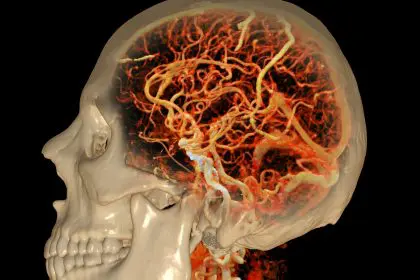Creatine, a compound naturally present in muscles and brain tissue, has long been associated with athletic performance and muscle development. However, groundbreaking research now indicates its potential role in mental health improvement, particularly in addressing depression symptoms. This naturally occurring substance, synthesized daily by the body through the liver, pancreas, and kidneys, appears to offer benefits extending far beyond its traditional applications. The body produces approximately one gram of creatine daily through natural processes, while additional amounts can be obtained through dietary sources such as meat and fish.
The science behind mental wellness
Recent scientific investigations have unveiled compelling evidence regarding creatine’s impact on mental health. A comprehensive study examined 100 participants undergoing cognitive behavioral therapy, revealing significant improvements in depression scores among those receiving supplementation compared to those taking placebos. This finding carries particular significance given that approximately 21 million adults in the United States currently experience depression. The research spans multiple years and includes various demographic groups, strengthening the validity of these observations.
Understanding the biological connection
The relationship between creatine and brain function presents a fascinating area of ongoing research. Scientists have observed correlations between low creatine levels and increased depressive symptoms, suggesting a biological mechanism linking this compound to mental wellness. The supplement’s ability to influence brain energy metabolism may contribute to its potential therapeutic effects. Research indicates that creatine plays a crucial role in maintaining cellular energy levels within the brain, particularly in regions associated with mood regulation and emotional processing. The compound works by supporting the production of adenosine triphosphate, the primary energy currency of cells, which is essential for optimal neuronal function.
Biochemical mechanisms and brain function
The biochemical pathways through which creatine influences brain function involve complex interactions with neurotransmitter systems. Studies have shown that supplementation can affect the metabolism of several important neurotransmitters, including serotonin and dopamine, which are crucial in mood regulation. The compound also appears to support mitochondrial function within brain cells, potentially protecting against oxidative stress and maintaining cellular energy balance. This metabolic support may be particularly beneficial in conditions where brain energy metabolism is compromised.
Research-backed benefits
While the mental health findings generate considerable interest, creatine’s benefits extend across multiple domains of human health. Research indicates positive effects on lean body mass development, energy production, and cognitive function. Studies have demonstrated improvements in short-term memory, intelligence test scores, and reduced mental fatigue in individuals supplementing with creatine. The compound has shown promise in supporting cognitive function during sleep deprivation and may help maintain mental performance under stress. Additionally, investigations suggest potential benefits in managing sleep deprivation effects and maintaining hormonal balance, presenting a comprehensive profile of health advantages.
Dosage and supplementation protocols
Scientific literature provides clear guidelines regarding effective creatine supplementation. Research typically recommends a loading phase of 20 grams daily for 5-7 days, divided into four equal doses, followed by a maintenance phase of 3-5 grams daily. However, studies focused on mental health benefits often utilize different protocols, with some showing positive results from consistent daily doses of 5 grams without a loading phase. The timing of supplementation may also play a role in its effectiveness, with some research suggesting benefits from taking creatine with carbohydrates to enhance absorption.
Safety considerations and monitoring
Extensive research has established creatine as one of the most thoroughly studied supplements available. Long-term studies spanning up to five years have demonstrated its safety when used as directed. However, individual responses may vary, and certain populations, including those with kidney disorders or taking specific medications, should exercise caution. Regular monitoring of kidney function markers is recommended for individuals on long-term supplementation protocols. Proper hydration remains essential during creatine supplementation, as the compound influences cellular water retention.
Population-specific considerations
Research indicates that certain populations may derive particular benefits from creatine supplementation. Vegetarians and vegans typically have lower baseline creatine levels due to dietary patterns, potentially making supplementation more impactful. Age-related differences in creatine metabolism suggest varying benefits across different life stages. Studies involving older adults have shown promising results regarding cognitive protection and maintenance of brain function. Additionally, research indicates potential gender-specific responses to creatine supplementation, with some studies suggesting unique benefits for women.
Future research directions
The scientific community continues to explore new applications and mechanisms of creatine supplementation. Current research focuses on understanding individual variation in response to supplementation, optimal dosing strategies for different populations, and potential synergistic effects with other compounds. Studies are investigating creatine’s role in preventing or managing various neurological conditions beyond depression. The development of new delivery methods and formulations may enhance the compound’s effectiveness and accessibility.
Implementation in clinical practice
The integration of creatine supplementation into mental health treatment protocols requires careful consideration of individual patient factors. Healthcare providers increasingly recognize the potential value of supplementation as part of comprehensive treatment approaches. The accessibility and affordability of creatine make it an attractive option for those seeking to support their mental and physical well-being. However, medical supervision remains essential when incorporating any new supplement into a health regimen, particularly for individuals with existing medical conditions or those taking medications.














